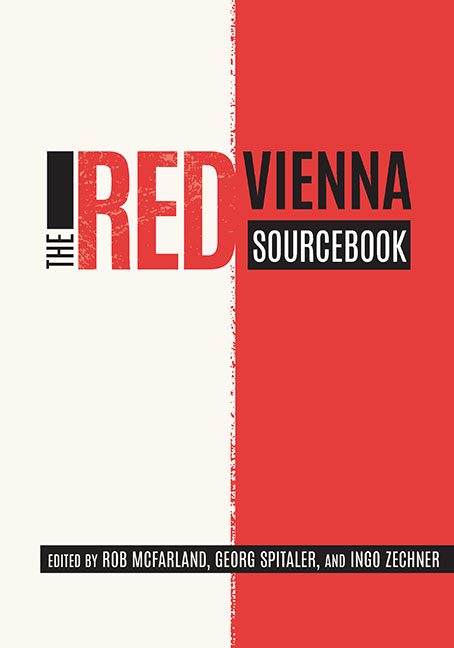Book contents
- Frontmatter
- Contents
- Acknowledgments
- Permissions and Credits
- A Note on the Structure of This Book
- Introduction
- Part I Foundations
- Part II Philosophies
- Part III Identities
- Part IV New Values
- Part V Social Engineering
- Part VI Vitality
- Part VII Housing
- Part VIII Cultural Politics
- Part IX Mass Media
- Part X Exchange
- Part XI Reaction
- Part XII Power
- Chronology
- References
- Contributors
- Index of Subjects
- Index of Persons
Chapter 31 - Anti-Semitism
Published online by Cambridge University Press: 23 October 2020
- Frontmatter
- Contents
- Acknowledgments
- Permissions and Credits
- A Note on the Structure of This Book
- Introduction
- Part I Foundations
- Part II Philosophies
- Part III Identities
- Part IV New Values
- Part V Social Engineering
- Part VI Vitality
- Part VII Housing
- Part VIII Cultural Politics
- Part IX Mass Media
- Part X Exchange
- Part XI Reaction
- Part XII Power
- Chronology
- References
- Contributors
- Index of Subjects
- Index of Persons
Summary
THE RISE OF POLITICAL ANTI-SEMITISM as a populist strategy of slander, discrimination, and repression of Jewish citizens and refugees is associated in Vienna above all with the name of Karl Lueger, the founder of the Christian Social Party and mayor of Vienna from 1897 to 1910. Lueger was not the first Viennese politician who exploited anti- Jewish sentiments for political purposes, but he was the first who, on the basis of these sentiments, succeeded in uniting the varied anti-liberal, conservative petty bourgeois, and antisocialist reform movements of the 1880s into a mass party and thus put an end to the liberal hegemony in Vienna. Lueger created a coherent political narrative out of the “popular” articulation of anti-Semitism that imagined Vienna as the epitome of a preindustrial- bourgeois, corporatist-familial, and above all Christian city pitted against the Jewish other. In Lueger's Vienna, Jews (who, by constitutional law since 1867, had been citizens with equal rights) were held responsible for just about every development that threatened the existence of the petty bourgeoisie, including industrial and finance capitalism, which replaced the traditional forms of economy; secularism, cosmopolitanism, and internationalism which loosened religious as well as local bonds and therefore supposedly led to a decline of values and morals; and materialism and abstract rationalism which demystified the world and spawned Marxist socialism.
If anti-Semitism was but a populist strategy, firmly rooted in the city's political discourse because of Lueger, after the collapse of the monarchy and the lost world war it became further radicalized through the spread of racialized anti-Semitic sentiments. This radicalization is usually attributed to the pan-German People's Party (Großdeutsche Volkspartei) which as the successor of the pan-German (völkisch) movement sympathized with Georg von Schönerer's radical anti-Semitism, and to the pan-German students at Vienna's universities who were predominantly inclined toward German nationalism and among the first to turn on their Jewish classmates. However, after the end of the war, a wide range of Christian intellectuals thought that the so-called Jewish question could only be solved with discriminatory laws, internment, or expulsion. This included Christian-conservative intellectuals such as Richard von Kralik or Joseph Eberle as well as a new generation of Christian Social politicians including Leopold Kunschak, Emmerich Czermak, and Anton Jerzabek, who founded the Anti-Semites League in 1919.
- Type
- Chapter
- Information
- The Red Vienna Sourcebook , pp. 609 - 626Publisher: Boydell & BrewerPrint publication year: 2019

